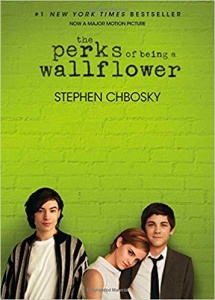Teen Read Week
Listen to the Recess! Clip
| Author | Jim Haskins |
| Air Date | 10/18/1999 |

Teen Read Week Transcript
This is Teen Read Week and we’ve asked Jim Haskins, one of our leading authors of books of non-fiction and biography for teenagers, for his thoughts about that perennial question: how do we get teens to read more in general and more challenging books in particular.
Teens are already reading. They just aren’t reading the kinds of things we think they should be reading. They’re reading magazines about the things they’re interested in — celebrities or style, sports or computers, popular music or movies. And they’ll read these magazines from cover to cover, studying them, learning facts and details by heart. They’ll memorize the lyrics of their favorite songs, somehow managing to decipher even the most obscure of texts . They’ll join poetry chat rooms and read dozens of poems their peers have posted every night. They’ll ponder the directions for computer games and digest the endless statistics of their favorite sport.
And when they aren’t reading these things close to home, other activities are competing for their time: listening to music, going to movies, playing sports, working, going to school, hanging out with their friends. When they read actual books, it’s usually for school assignments, or else it’s something that their friends are reading — the latest Stephen King perhaps, or the new Judy Blume — or a book being pushed by the Internet, like Stephen Chbosky’s The Perks of Being a Wallflower, which was published by MTV — it’s been through four printings to date and has gotten a lot of attention on-line, where young people are finding more and more of the information that guides their tastes and interests.
So what do we do as parents, educators, concerned adults? Of course, we do what we can. We have to keep buying them books or bringing them home from the library and leaving them on the coffee table for them to find. We have to read some of the books they’re reading so that we can share some common reading ground with them. We have to keep writing books for them about people and subjects that are interesting to them. If I manage to write a good book about, say, Spike Lee, I hope that young people will trust what I’m doing enough to read a book I might write about Duke Ellington. We do what we can. We’d better. Because even though it may seem like we’ll always be taking care of our teenagers, one day they’ll be taking care of us.